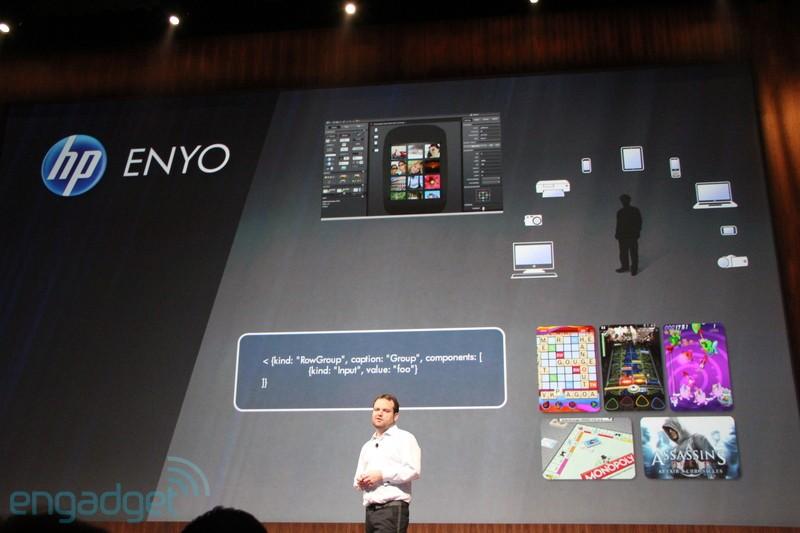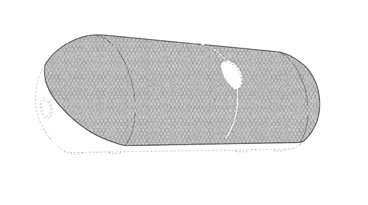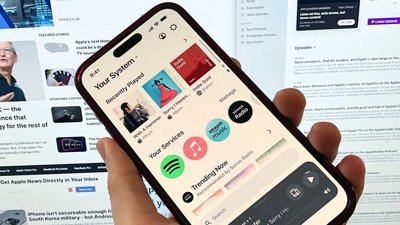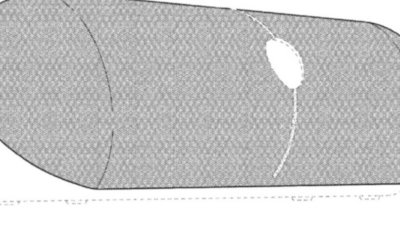HP ran its webOS SDK on iPad 2, hopes to license it as mobile web app tool
While early reports suggested that HP had internally got webOS running on Apple's iPad 2 hardware only to find that it purportedly ran "twice as fast" there, the reality is that webOS developers had actually brought their Enyo software development kit to the iPad 2, as AppleInsider has confirmed with a source within the webOS team.
Enyo is HP's JavaScript development framework for building web apps, core to webOS as a platform. Rather than resulting from an extreme difference in hardware, the aspect of Apple's tablet that made it run Enyo webOS apps so much faster is Apple's superior web browser JavaScript performance compared to the less sophisticated, simply named "Web" browser of webOS.
Evolution of the webOS strategy
While the original webOS team at Palm delivered an SDK called Mojo that worked to use Apple's WebKit as a way to rapidly create a functional platform for smartphones that could rival the iPhone experience, by the time HP acquired Palm's webOS that strategy had shifted to become a way deliver web-based apps that could deploy to both phones and tablets, and potentially other devices (a key feature of the newer Enyo SDK).
HP saw webOS primarily as a way to replace its embarrassing Slate PC fiasco that had begun when it joined Microsoft on stage just weeks before Apple's launch of iPad to demonstrate a new renaming of the Windows powered Tablet PC platform. Next to the iPad, the HP Slate looked so bad it came as no surprise that the company didn't even bother to manufacture more than a few thousand units.
By the summer of 2010, HP realized that just like Palm the year prior, it desperately needed to demonstrate a new mobile development platform if it wanted any hope of competing against Apple. Under the helm of chief executive Mark Hurd, it subsequently paid $1.2 billion for Palm in order to hit the ground running, building upon the work Palm already completed.
HP abruptly pulls out of hardware
Shortly afterward, Hurd was replaced as HP's chief executive by Léo Apotheker, the former chief of SAP, an enterprise software company then embroiled in a high profile intellectual property lawsuit brought by Oracle.
In an announcement outlining HP's future strategy, Apotheker stated that in his first 9 months on the job he had determined that HP had no profitable role to play in developing mobile hardware and had decided to kill the webOS hardware team. This was news to the entire team working on webOS products, as even its top management learned about the shift via HP's press release.
Apotheker also announced that HP would be evaluating its options in getting rid of its PC hardware business to focus on enterprise software, a path similarly followed by IBM. Also noted was the fact that HP was in a legal battle of its own with Oracle, suggesting that Apotheker wanted to convert HP into another SAP to directly battle Oracle in the software business, given that Oracle had brought itself into conflict with HP by buying Sun and pushing its customers to move from HP servers to Sun hardware.
At the same time, Apotheker also indicated that HP would maintain webOS and similarly evaluate various avenues for using the platform internally or externally through licensing deals with third parties. Some observers have suggested that remaining players in the smartphone industry might want to license webOS as a hedge against Android and its various lawsuits, particularly given that HP also owns the mature patent portfolio of Palm, giving the platform some protection from external patent claims.
HP's webOS options
According to source with knowledge of the situation, HP is already scheduled to begin talks with one potential licensee today. At the same time, finding another mobile hardware maker to buy or license webOS for use as its new operating system isn't HP's only recourse for recovering value from the work already invested in webOS.
The fact that webOS is built around WebKit means that its flexible Enyo SDK can be used by web developers to build cross platform apps that can run on any mobile device employing WebKit, which includes Apple's iOS, Google's Android and RIM's BlackBerry PlayBook. The only notable mobile platform that doesn't use WebKit is Microsoft's Windows Phone 7.
The design goal of Enyo is to create mobile apps using web standards, but with the flexibility to adjust to multiple screen sizes. Palm hoped this would create a platform that would support apps on both smartphones and tablets, and HP expanded that concept to also embrace PCs and other devices, suggesting at one point that it would roll some portion of webOS out across its desktop and notebook computers. The company has also hinted at using webOS in its printers, and suggested other targets in its presentation of the Enyo SDK.
Bringing webOS apps to PC users wouldn't be difficult to do using Apple's Safari or Google's Chrome browser (both of which use WebKit), essentially giving webOS's Enyo platform the ability to deliver sophisticated web apps that properly scale to run anywhere. A variety of JavaScript frameworks already exist to help developers create sophisticated web apps, including several Apple uses internally or offers publicly as a way to create native-looking and acting web apps for the iPhone and iPad, but Enyo is designed to scale between devices, not just to target a specific device (like the iPhone) with the look and feel of its native apps.
webOS could rival Chrome OS, Windows 8
If HP could gain traction for the webOS Enyo framework among developers who want to target mobile devices using web apps (including those who want to evade Apple's App Store rules and revenue sharing requirements by sticking to web apps), it could also mount credible competition to Google's Chrome OS and Microsoft's Windows 8 as a way for hardware makers to deliver web-based computers capable of running sophisticated web apps in addition to just browsing web pages.
Unlike Chrome OS or Windows 8, webOS has already completed the work necessary to scale its same apps to run on tablets and smartphones. Most critically, web apps created using webOS' Enyo SDK also run on Apple's iOS devices too, resulting a vast installed base of valuable users to target in addition to Chrome OS-like simple laptops, standard PC desktop browser users, and other WebKit mobile platforms.
Google's Chrome OS apps don't even work on the company's parallel, mobile Android platform, while Windows 8 is only aimed at tablets and PCs, competing against the Silverlight-based Windows Phone 7 in smaller mobile devices.
HP doesn't have to compete with Apple's Cocoa framework in Mac OS X or Cocoa Touch on iOS devices because Apple desktop and mobile products also support the open web as an unrestricted platform, leaving the iPhone, iPad and Mac open to running web apps developed with Enyo. Developers will only need to find a market for their apps outside of Apple's App Store, which is restricted to native Cocoa apps.
The biggest issue for HP is that it has already made the Enyo SDK available for free to developers, apparently in the hopes that they'd deliver apps that would add value to the webOS hardware it had been selling.
With that mobile hardware now canceled, HP will need to find a way to sell its tools or license the technology to a hardware maker with similar needs. Currently, webOS appears to lack a business model to support the software based strategy the company has already leaped to embrace.
 Daniel Eran Dilger
Daniel Eran Dilger











 William Gallagher
William Gallagher
 Malcolm Owen
Malcolm Owen
 Mike Wuerthele
Mike Wuerthele










